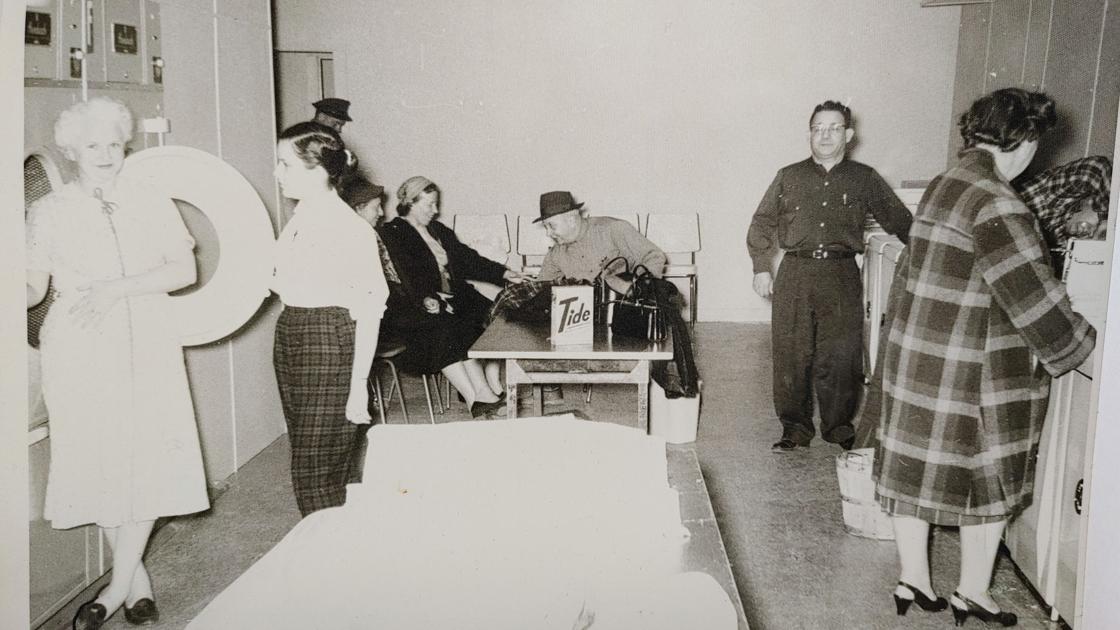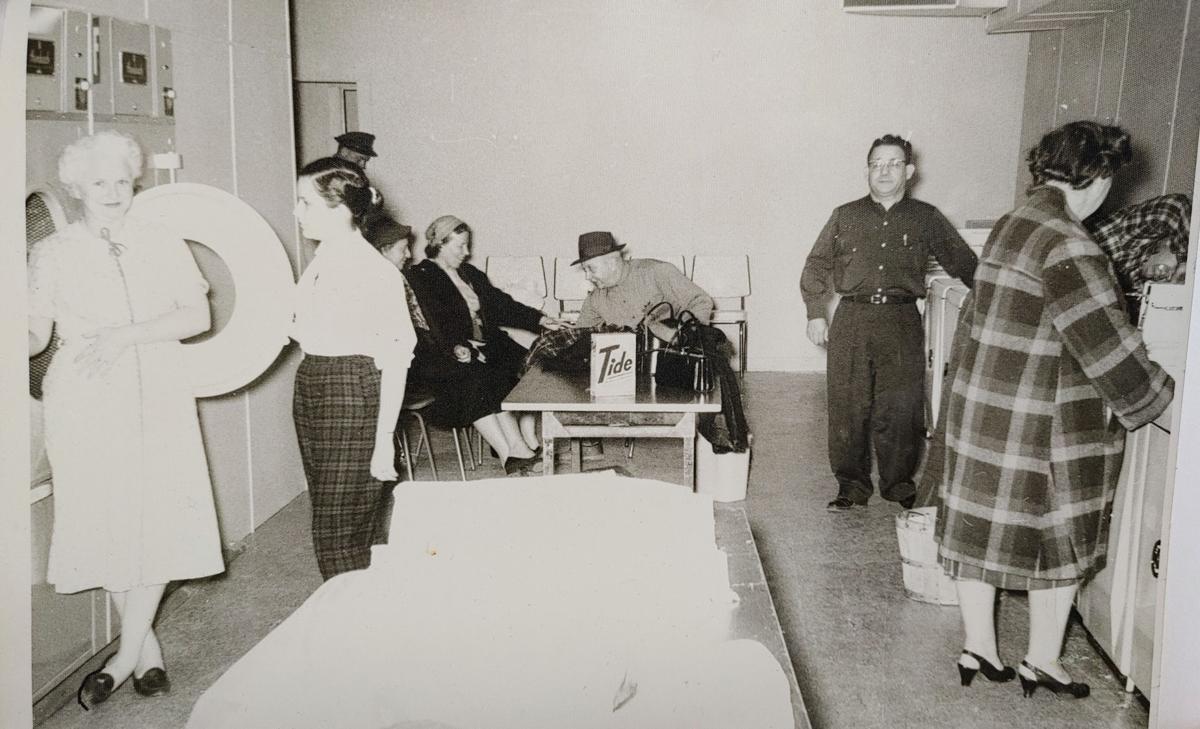
Oh, it is a bummer when your washing machine goes ka-put!
Or when you’re out of change for the coin-operated dryer and your socks are still wet.
Or when your ride to the laundromat bails at the last minute and you have no clean underwear.
There’s no woe like a laundry woe.
Our washing machine — the “new” one — decided it didn’t like to spin. It was as if the washer looked at its one-year warranty card, and on the 366th day, said, “I’m done.”
It did not say, “I’ll just finish this last load, and then I’m done.” No, it quit mid-cycle, leaving two throw blankets, a towel and a pair of pants sopping wet.
When was the last time you tried to wring water out of a blanket? Talk about an exercise in futility. No matter how much you squeeze, water still drips out. So I did what any normal person would do with a load of heavy, wet clothes. I threw them in the bathtub.
In the meantime, I called a repair expert and learned the cost to fix the machine would be more than the original purchase price.
“We’re lucky we can even get parts right now,” confided the shop owner. So, with less wear and tear than a surfboard in Central Illinois, the old washer was retired.
That’s when I decided to go big or go home. I got a Speed Queen. Not a lot of bells and whistles, but built like a tank. (No, this is not a paid advertisement, and if the machine konks out, you’ll be the first to know.) My grandparents owned Speed Queens; about 20 of them.
Back in the ‘60s, my mother’s parents owned a laundromat in Pontiac called Tony’s. My memories are of a warm, fresh smelling and happy place. (Although I did get scolded for “drawing” horsies and doggies with my finger on the foggy, condensation-covered windows.)
My grandmother kept the establishment nice and tidy and often helped customers fold clothes. On Sundays, she collected change from the machines and put the coins into paper bank rolls. As a safety precaution, she invited her brother, who worked for the Illinois State Police, to sit nearby while she counted the coins.
Today, depending on the laundry facility, quarters may or may not be essential to having clean clothes. Some pay-per-use machines still require coins, as much as $3 per washer load, while others use a pre-paid card or mobile app.
For example, my uncle Greg, who lives in an apartment complex in Los Angeles, does laundry with machines equipped with card readers. The cards are purchased via a dispenser which is located in another building and only accepts $5 bills. To make sure he has the correct bills, he asks for specific change at the grocery store.
Sounds like a hassle, but it’s still easier than hoarding quarters.
Before the days of card readers, Greg collected coins throughout the week to make sure he had enough to feed the machines — at that time, $3. During the week, he built three stacks of four quarters each on his bedroom dresser.
It’s not easy coming up with 12 quarters every week, but he did. And it wasn’t like he did extra cycles with the dryer in order to wear warm clothes like Kramer in Seinfeld. (See the episode “The Calzone.”)
Then something unsettling happened. Greg discovered his apartment had been robbed. Some of his belongings were knocked over and broken, but one thing was missing: his weekly stack of laundry quarters. The thief had gotten away with $3. The LA police, my uncle recalls, weren’t overly interested in launching an investigation.
The Speed Queen, by the way, is spinning just fine. No quarters, state police escort or card reader required.
Contact Susan Hazlett at susanrhazlett@yahoo.com or write to her in care of The Pantagraph, 205 N. Main St., Bloomington, IL 61702-2907.
January 29, 2021 at 09:30PM
https://www.pantagraph.com/lifestyles/family/hazlett-no-woe-like-a-laundry-woe/article_003bc13f-4d7e-5b48-a572-c25b074342d7.html
Hazlett: No woe like a laundry woe - Bloomington Pantagraph
https://news.google.com/search?q=Laundry&hl=en-US&gl=US&ceid=US:en



No comments:
Post a Comment